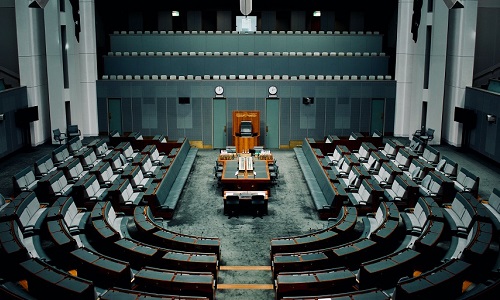The Australian Government invited individuals, businesses and community groups to submit their ideas and priorities for the 2023-24 Budget.
The Government places significant importance on receiving submissions in developing its budget strategy and policies.
Deafness Forum Australia’s submission to the Federal Budget outlines a series of recommendations that aim to address the burden of hearing loss among vulnerable groups, First Nation peoples, those requiring specialised programs to address their hearing needs, and people on low income.
The Australian Government Hearing Services Program aims to reduce the impact of hearing loss by providing eligible people with access to hearing services. The Community Service Obligation component of the Program includes individual rehabilitation programs for people with complex hearing rehab needs such as children, adults with severe to profound hearing loss or severe communication difficulties, including those in aged care; and culturally appropriate programs for Aboriginal and Torres Strait Islander people.
In Deafness Forum’s view, the objective of the Hearing Services Program should be to ensure that vulnerable groups, those requiring specialised programs to address their hearing needs, and people on low income have access to high-quality hearing services at no cost or minimal cost. In order to do so, the eligibility of the Program should be extended to a broader group of vulnerable people including:
- People on a Health Care Card, or Low Income Card
Health Care Card holders and Low Income Health Care Card holders who are not eligible for hearing supports under the National Disability Insurance Scheme should have access to government-funded hearing services as a vulnerable group on low income. Access to hearing services could improve the person’s opportunities for further education, employment or advancement within existing employment.
- Seniors Health Care Card Holders
As the prevalence of hearing loss increases with age, it is critical to ensure that this population has appropriate access to hearing services so they can continue to engage socially and through employment. There are many self-funded retirees who do not have high levels of superannuation and because they do not receive any concessions on living expenses, struggle to fund the hearing services they need. The eligibility criteria needs to be reviewed so that it is targeted to the broader ageing population who need assistance with their hearing needs as they age, and who are not in a position to fund these services themselves.
- Children of refugees
Most children living with hearing loss in Australia have access to the Hearing Services Program which provides listening devices such as hearing aids and cochlear implants as well as early intervention programs to ensure their speech and language outcomes are on par with their hearing peers. These children, up until the age of 26 who are Australian citizens or permanent residents, are given every opportunity to access equitable education to ensure employment opportunities in adulthood.
However, for children with hearing loss living in Australia whose parents may be waiting for citizenship or permanent residency – and therefore, do not fulfil Hearing Services Program eligibility criteria – their opportunities to thrive in adulthood are much more difficult. Firstly, many are fleeing countries with higher rates of chronic otitis media, which if left untreated can lead to life-long hearing loss. They may be unable to access hearing assessments in their country of origin and, once in Australia, due to the visa status of their parents, are denied access to the health care and services provided by the Hearing Services Program that could equip them with the support needed to successfully settle into the Australian community and to access education and jobs. Research shows that in Australia, rates of chronic suppurative otitis media are much higher in refugee populations than in the wider community. Some refugee populations are also at higher risk of developing hearing loss due to exposure to extreme noise during conflict situations in their country of origin.
Being proficient in English is a priority for all refugees and even mild hearing loss will restrict their learning and subsequent access to education, government services and jobs. By providing access to the Hearing Services Program, this small and vulnerable population will have the best chance of successful resettlement and participation in the social and economic life of the nation.
- People in the criminal justice system
People held in incarceration are among the most vulnerable in our society, having experienced high rates of social disadvantage, as well as trauma from family violence and sexual abuse in childhood. They experience higher rates of hearing loss than the general population, particularly those from Aboriginal and Torres Strait Islander communities, leading to acute hearing needs that are currently being poorly serviced by current policies.
While the HSP is federally funded, prisoners are denied access to the Hearing Services Program because correctional facilities are a state and territory matter. However, without adequate access to the Program, the vicious cycle of social disadvantage, incarceration and recidivism is likely to continue.
- People in Aged Care
Addressing the hearing needs of people in aged care facilities is a complex and challenging problem. Servicing this group is financially unattractive to commercial audiology service providers.
It should be managed through the Government’s Community Service Obligation program. Research shows that those in aged care have a much higher prevalence of hearing and communication impairment than those living in the community, contributing to further barriers to psychosocial wellbeing. They are also more likely to have more complex health conditions combined with hearing loss such as dementia, vision loss and physical impairments, requiring a program that can provide specialist care and support.

